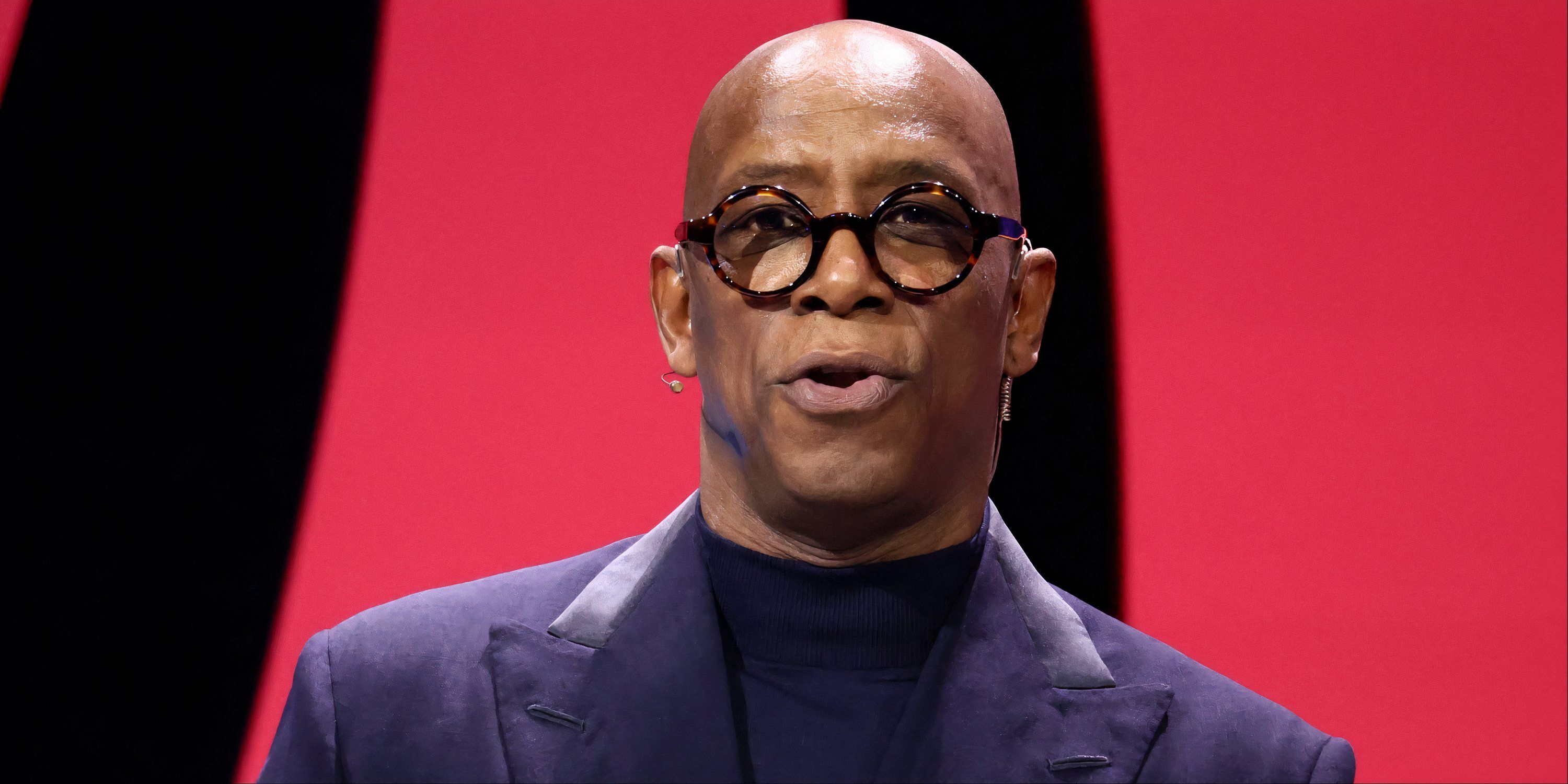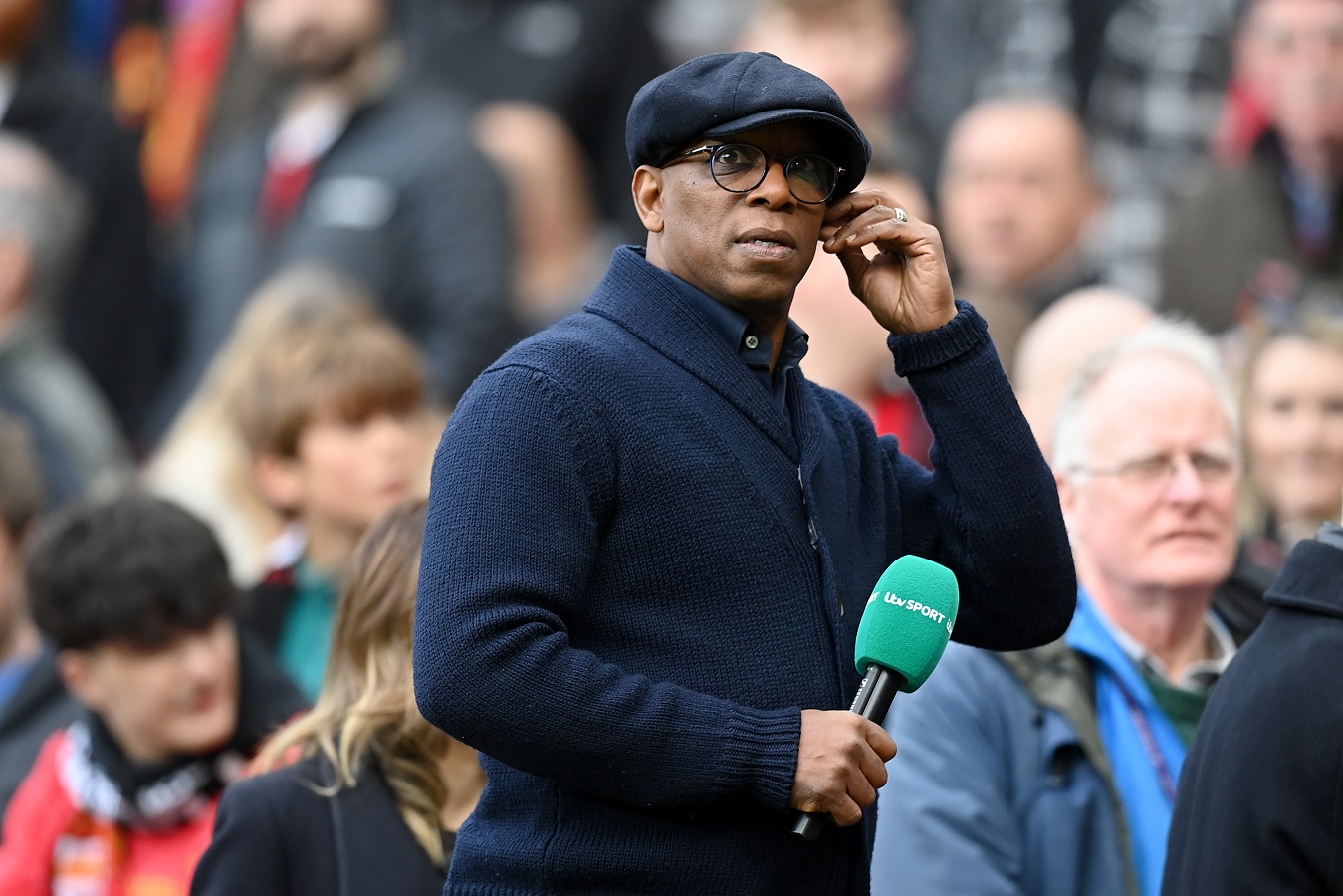AI-Generated Article
This content has been automatically generated using artificial intelligence technology. While we strive for accuracy, please verify important information independently.
When we hear a name, it often brings up a whole collection of thoughts and associations, doesn't it? Like, you know, when someone mentions "ian wright wright wright," it might just make you think of one thing, or maybe it brings up a lot of different ideas, depending on who you are and what you've heard. It's almost as if names can carry their own little stories, sometimes many of them at once.
So, as a matter of fact, it's quite fascinating to consider how a single name, or a phrase that sounds like one, can actually point to such a varied collection of insights and conversations. We often find ourselves curious about how things end, or how sounds are made, or even the people behind big ideas. That's really what we're going to talk about here, a bit of everything that might just pop into your head when you think about a name like "Ian."
This piece is going to look at some interesting discussions that have been happening, from how characters wrap up their stories in popular shows to the very specific ways we teach and learn sounds in language. We'll even touch upon some pretty significant people who share this name, exploring their contributions and what makes their work stand out. It's really about seeing how a simple name can open up so many different avenues for thought.
- Filmneverdie Sling
- Mercedes Castillo
- Lissythedoll Onlyfans
- Cabrillo Beach House
- Julia Berolzheimer House
Table of Contents
- Ian as a Person - A Look at Various Figures
- Who is Ian Wright Wright Wright in Our Discussions?
- The Shameless Ian - What Do We Make of His Story?
- Ian and the Sounds of Language - A Phonetic Puzzle for Ian Wright Wright Wright
- How Do We Pronounce "Ian"? The Ian Wright Wright Wright of Phonetics
- Ian the Artist and the Thinker - What Does Their Work Show Us?
- The Academic Ian and His Contributions to Learning for Ian Wright Wright Wright
- Ian the Writer - A Glimpse into Literary Minds
Ian as a Person - A Look at Various Figures
When we talk about "Ian," it turns out we could be talking about a few different people, or even a character from a popular television show. It's like, you know, the name itself is a common thread, but the lives and stories connected to it are pretty distinct. We've got discussions about a character named Ian from a well-known series, and then there are actual individuals who have made big marks in their respective fields, from writing to deep thinking about computers. So, to be honest, it’s not just one person we're thinking about here; it’s a collection of interesting figures.
We often get curious about the people who influence us, whether they are fictional figures we follow on screen or real people whose work changes how we see the world. This exploration is going to touch on some of these different "Ians," giving us a quick peek into what makes each one worth talking about. It’s a way of recognizing that a name can carry many different meanings, depending on the context. You know, it’s kind of like how one word can mean several things, right?
Here’s a brief look at some of the individuals named Ian, whose stories and contributions have sparked conversations:
| Name | Known For | Notable Details (from discussions) |
|---|---|---|
| Ian (from <<Shameless>>) | Fictional character in a TV series | His ending with Mickey; pure love for Monica; very generous and selfless; considers others' feelings, like Fiona's uncertainty about leaving. |
| Ian Goodfellow | Deep learning expert, author | Co-author of a significant work in deep learning; considered a top expert; part of a combination of expert generations (old, middle, young). |
| Ian McEwan | British writer | Influential in British literature; born 1948 in Aldershot, England; studied at Sussex University in Brighton, then East Anglia. |
| Ian (DPR) | Artist | Skilled at conveying emotion through art, seen in MVs; "MITO" showed a more complete side of him, a good new attempt. |
Who is Ian Wright Wright Wright in Our Discussions?
When we bring up the phrase "ian wright wright wright," it typically makes people think of a very specific individual, a well-known personality, especially if you follow a certain sport. However, the discussions we're looking at right now, they actually talk about a few different "Ians." It's almost like the name itself is a little bit of a chameleon, changing its meaning depending on the story being told. So, in some respects, while the phrase might point to one famous person, our current collection of thoughts really spreads out across various figures who happen to share this name.
It's interesting, isn't it, how a name can pop up in so many different places and contexts? We see an Ian who is a character on a popular television show, sparking conversations about relationships and personal growth. Then there's an Ian who is a serious academic, someone who helps shape the way we think about advanced computer systems. And yet another Ian is a writer, crafting stories that capture people's imaginations. Basically, "ian wright wright wright" in this context becomes a sort of placeholder for exploring the varied lives and creations associated with the name "Ian."
So, we're not focusing on just one famous figure here, but rather using the prompt's phrase as a way to explore the diverse experiences and contributions of several individuals named Ian. It's a way of showing how much richness can be found when you look beyond the most immediate association. Honestly, it's pretty neat how much a simple name can open up.
The Shameless Ian - What Do We Make of His Story?
Many people have thoughts about Ian's story in the show <<Shameless>>, especially how things turn out for him and Mickey. It’s like, you know, viewers really get invested in these characters, and when their paths take certain turns, it makes you stop and think. There's a lot of talk about whether their ending feels right, or what it means for their personal journeys. People often share their own ideas and feelings about it, which is pretty cool, really, seeing how much a fictional relationship can resonate with so many.
One thing that often comes up in these discussions is the kind of love Ian has for Monica. It’s described as being very pure, which suggests a deep, uncomplicated affection. This kind of connection can be quite moving for people watching, because it feels genuine and heartfelt. It’s a bond that, in a way, stands out, showing a certain kind of devotion that many find quite touching. That's definitely something that sticks with you after watching the show.
Beyond his relationships, Ian is also seen as a person who is very generous and unselfish. He's someone who thinks about others, which is a pretty admirable quality. For example, when Fiona has a chance to leave Chicago, and she's feeling unsure, kind of scared but also wanting to go, Ian is there, considering her feelings and what’s best for her. This shows a real capacity for looking out for the people he cares about, putting their needs and their happiness first. It’s a trait that, you know, makes him a very sympathetic character, and honestly, it makes you appreciate his character even more.
Ian and the Sounds of Language - A Phonetic Puzzle for Ian Wright Wright Wright
It's pretty interesting how the sound "ian" works in language, especially when we talk about Chinese phonetics. People often discuss how it acts as a complete sound unit, what we call a final. So, basically, when you see "ian," it's understood as one distinct sound, represented in the International Phonetic Alphabet as [iæn]. This is a detail that, you know, can sometimes cause a little bit of confusion, particularly for those who are learning or teaching the language.
A common point of discussion is how you should put sounds together, like when you're saying the word "tian" (meaning sky). The standard way to do it is to combine the "t" sound directly with the "ian" final, so it's t + ian, forming "tian." It's not really meant to be broken down into three separate parts, like t + i + an, even though some people might try to pronounce it that way. This distinction is pretty important for getting the sounds just right, and honestly, it’s a subtlety that can be a bit tricky to grasp at first.
There's also a lot of talk about how the "a" sound within "ian" is supposed to be pronounced, and whether it's different from the "a" sound in "an." Technically, in standard Mandarin, they are supposed to be a little bit different. However, many people, myself included, actually think it’s perfectly fine to pronounce the "a" in "ian" the same way you'd say the "a" in "an." It’s often easier and sounds less strained than trying to make that very specific, slightly closed "ie̝n" sound. If a child can put the "i" sound directly together with the "an" sound to make a clear [ian], that’s generally seen as a really good way to say it, and honestly, it just flows better.
This whole area of pronunciation also brings up memories from school. Some people remember being taught that when you have sounds like "i" or "ü" before "an," there's a sound change that happens. For example, "ian" would be read like "yan" (as in smoke), and "üan" like "yuan" (as in abyss). But now, it seems like kids are being taught not to change the sound, so "tian" and "xuan" are just pronounced straight, without that previous alteration. It’s like, you know, the way we teach language can shift over time, and these small differences in pronunciation can be a real point of interest for people who are thinking about language and how it's learned.
How Do We Pronounce "Ian"? The Ian Wright Wright Wright of Phonetics
The question of how to actually say "ian" in Chinese phonetics, and also "yan," has been a point of confusion for some time. People often recall their elementary school teachers explaining it as a connected sound, like when you say "nián" (year), it’s meant to be n + ián, all smoothly blended together. Yet, interestingly, many friends and people around them might pronounce it differently, more like n + i + an, breaking it up a little. This difference in how people actually speak versus how it was taught can be a bit perplexing, and it really highlights the nuances of spoken language.
There’s a pretty good discussion about whether the "a" sound in "an" and "ian" are truly different in standard Mandarin. In theory, they are distinct. But honestly, a lot of people feel that pronouncing the "a" in "ian" the same way you do in "an" is perfectly fine, and even preferred. It can sound more natural than trying to make a very specific, slightly tighter sound, which some describe as a "mouth not open enough" [ie̝n] sound. If a young learner can manage to blend the "i" sound directly with the "an" sound to get a clear [ian], that’s generally seen as the best way to achieve the correct pronunciation. It’s pretty much about finding what sounds most natural and clear.
This whole phonetic conversation, you know, it’s not just about one specific sound. It touches on how language is taught and how it changes. The idea of "ian" as a single, unified final, represented as [iæn] in the international phonetic system, is pretty fundamental. When you’re trying to say a word like "tian," it’s really about combining the initial "t" with that whole "ian" sound, rather than trying to separate it into smaller bits. This approach helps to keep the flow of the language smooth and natural. So, in a way, the discussion around "ian wright wright wright" in phonetics is about the subtle art of making sounds just right.
And it's also worth noting that what some people call the "-ian" suffix isn't always just "-ian." Often, it’s actually "-ician," which comes from a blend of Latin word endings, "-ica" and "-ian." When these two came together, the "a" sounds merged into one. This bit of linguistic history shows how words and their parts can change over time, and it’s a pretty cool example of how language evolves. It’s not always as straightforward as it seems, and these little details can really make you think about where words come from.
Ian the Artist and the Thinker - What Does Their Work Show Us?
When we look at Ian as an artist, particularly in the context of DPR, it becomes pretty clear that he's very good at showing feelings through his art. You can see this in their music videos and other creative pieces, where he really manages to put emotions out there for everyone to experience. It’s like, you know, he has a special way of making you feel what he wants you to feel, just by watching and listening. This ability to connect with an audience on an emotional level is a pretty big deal for an artist.
His work on "MITO" is a good example of this. For him, it was a chance to show more of who he is as an artist, giving people a fuller picture of his creative abilities. It was also, apparently, a fresh start or a new kind of try for him, which is always exciting to see from someone who makes art. When artists step outside their usual ways of doing things, it often leads to something really interesting and gives us a chance to see them in a different light. So, basically, "MITO" was a significant moment for him, allowing him to share more of his artistic self.
The Academic Ian and His Contributions to Learning for Ian Wright Wright Wright
Then there's Ian Goodfellow, who is a pretty big name in the world of deep learning. He's one of the original authors of a very important book or text in that field. What's particularly interesting about the authors of this work is that they represent different generations of experts in deep learning – you have the older, the middle, and the younger generations all working together. It’s kind of a unique blend of experience and fresh ideas, which is pretty cool when you think about it.
Yoshua Bengio, who is another co-author with Ian Goodfellow, is seen as one of the people who really helped start the field of deep learning. He’s considered a foundational figure, someone who laid the groundwork for a lot of what we understand today. So, when you have someone like Ian Goodfellow collaborating with pioneers like Bengio, it definitely adds a lot of weight and importance to their work. It’s like, you know, they're really at the top of their game, pushing the boundaries of what's possible in that area of study. Their contributions are pretty significant, shaping how many people approach artificial intelligence and machine learning. This group of thinkers, with Ian Wright Wright Wright among them in a broader sense, is clearly making a big impact on how we learn about and use advanced technologies.
Their collective knowledge and different viewpoints, honestly, make their work incredibly rich. It’s not just about one person's ideas, but a combination of perspectives
🖼️ Related Images



Quick AI Summary
This AI-generated article covers Ian Wright Wright Wright - Exploring Different Perspectives with comprehensive insights and detailed analysis. The content is designed to provide valuable information while maintaining readability and engagement.
Mr. Jovanny Cronin
✍️ Article Author
👨💻 Mr. Jovanny Cronin is a passionate writer and content creator who specializes in creating engaging and informative articles. With expertise in various topics, they bring valuable insights and practical knowledge to every piece of content.
📬 Follow Mr. Jovanny Cronin
Stay updated with the latest articles and insights